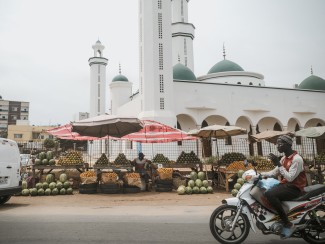During UNCTAD’s Ecommerce Week in April 2019, Deputy Director General for International Trade at the Cambodia Ministry of Commerce talks all things e-trade
What is the current state of ecommerce in Cambodia? What is your country doing to facilitate international e‑payments?
People in Cambodia have been using the internet to sell goods for quite some time now and have been using mainly Facebook as a marketing tool. They have recently upgraded to using video livestreaming to interact with buyers. Although sales are conducted online, payment is still made offline in the form of cash on delivery. It is not formal ecommerce because once the goods are delivered, the customers can return them, and the seller will need to pay the courier. There is no insurance system in place to protect the buyers and sellers. Therefore, we want to formalize the ecommerce industry, and offer an online marketplace where people are able to buy and sell in a formal and organized way.
As seen in most developing economies in the region, ecommerce in Cambodia is limited to domestic or import activities. Cambodian ecommerce is evolving rapidly with new services and payment solutions appearing monthly. In a relatively unbanked economy, e-payment solutions, for business-to-consumer sales have become very popular. International e-payment solutions and business-to-business payment solutions are still at the infancy stage, with e-remittances from Cambodian overseas workers gaining traction. Faced with fast and unchecked growth for a long time, the Cambodian Government has been developing a robust-yet-business friendly policy and legal environment, in line with its Rectangular Strategy 2019-2023. The strategy calls for increased support to digital innovation, industry 4.0 and electronic commerce under the ‘new sources of growth’ theme.
On international e-payments, Cambodia is quite open and welcomes all kinds of payment solutions, international or local. The local fintech industry is going strong in Cambodia and international e-payment solutions like credit cards, Alipay and WechatPay from well-known companies are generally accepted by merchants, although use of debit and credit cards remains very low. With electronic payment solutions, Cambodia has a unique chance to leapfrog from a cash only to a cashless society.
Supporting ecommerce in your country will help local micro-, small- and medium-sized enterprises (MSMEs). What kind of support do your country's MSMEs need and how can ecommerce offer solutions?
We have been saying for a long time that ecommerce is very beneficial to MSMEs and grants them access to a global marketplace and builds up a global clientele over the world. But right now in Cambodia we are not reaching this potential.
Several ministries have pooled resources to support the development of so-called ‘digital SMEs’ through different angles. For instance, the Ministry of Commerce (MoC) has mapped the recommendations of its eTrade Readiness Assessment and has interacted with development partners to align some of the recommendations with the respective donor’s programme. The country has also taken the recommendations into consideration by dedicating a chapter on ecommerce and a chapter on information and communications technology services and fintech in the Cambodia Trade Integration Strategy Update 2019-2023 – in order to mainstream results and progress made since the launch of the report into the Government sectoral strategy.
In addition, the MoC is putting into its pipeline a project focusing on services, MSMEs and cross-border ecommerce with the objective to realize our ecommerce potential. Specifically, the Ministry is looking to partner with major ecommerce players like Alibaba to develop an MoC ecommerce platform to allow Cambodian MSMEs to trade online. We will conduct a series of activities to promote and support MSMEs to move online in order to access the global marketplace. It may be also possible to integrate our own MoC e-commerce platform with major platforms so the Cambodian products sold will not only be available to our existing platform clients but also to a global clientele.
What kind of national products are you envisioning for ecommerce sales in the global marketplace?
We will start small for this new online platform. We are looking to showcase Cambodian niche products that are attractive to overseas markets. So we are looking at silk, home textiles and tablecloths as a first step. We can gradually expand to other products depending on the success of this first step. We will be focusing on no‑ to low‑barrier goods because the difficulty for us is that most of our products do not comply with many technical standards. Therefore, we need to focus on easily exported products first as MSMEs face a challenge in complying with sanitary and phytosanitary standards or other similar rules. Then we can expand the basket.
If you would like to reuse any material published here, please let us know by sending an email to EIF Communications: eifcommunications@wto.org.


